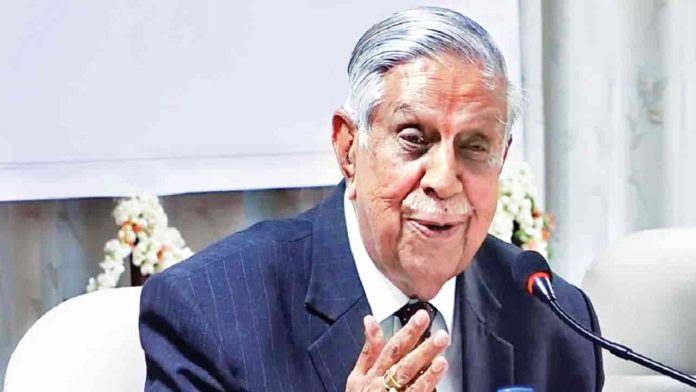Sanjay Raman Sinha (SRS): From your own experience, how serious is the problem of political pressure on lower court judges?
Justice MN Venkatachaliah: The general feeling is that the judicial system is insulated from political pressure and is true also. It might happen in some rare cases or in some cases which are amenable to outside pressure. But by and large, the subordinate judiciary in the country is independent and political pressure is perhaps not an important impediment.
SRS: CJI DY Chandrachud said: “Judges will instill confidence when their actions are uninfluenced by social, political pressure, free of bias.” Is the judicial system geared well to protect lower court judges from political pressure? If not, what needs to be done?
MNV: This is a phenomenon which can be attributed to every level of the judicial system. I think the subordinate judiciary, in particular, functions in a fairly independent manner. I think the phenomenon should be addressed in relation to the system as a whole and not necessarily confined to the subordinate judiciary.
SRS: Many cases are brought to the judiciary to settle political scores. Recently, the Supreme Court slammed the DMK and the AIADMK on the use of the state machinery to settle scores and said it poses grave danger to democracy. How challenging is the situation?
MNV: The issue of settling political scores by filing cases is quite a serious problem; it has to be discussed and the solution found. The best solution is to emphasize the philosophy of judicial independence at the state level. Secondly, superior courts have to lay down norms to distinguish a politically sensitive case and solutions to be prescribed for them. I think this requires a serious debate between the bar and the bench; and perhaps the political system must also be involved in finding norms for the correct approach to this matter.


